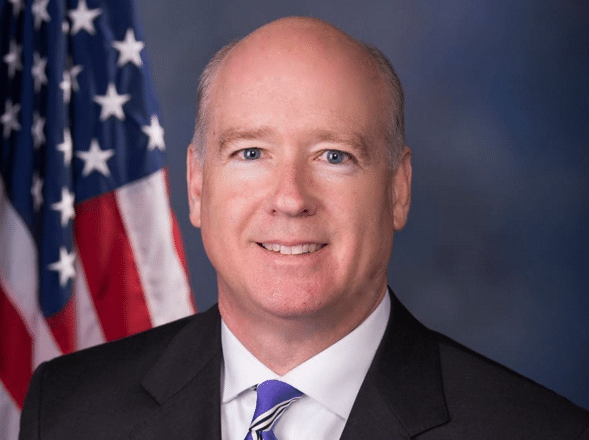
Rep. Robert Aderholt (R-Alabama) introduced an amendment that Democrats say gives child welfare agencies that receive taxpayer money a “license to discriminate” against LGBT families who want to adopt or foster children.
House Republicans have passed an amendment that Democrats say gives child welfare agencies that receive taxpayer money a “license to discriminate” against LGBT families who want to adopt or foster children.
‘LICENSE TO DISCRIMINATE’
The amendment — added quietly by Rep. Robert Aderholt (R-Ala.) into a funding bill for the Departments of Labor, Health and Human Services, and Education — would allow adoption agencies to reject potential families because they conflict with the agency’s “religious beliefs or moral convictions,” a dog-whistle conservatives use when they want to discriminate against the LGBTQ community.
The House Appropriations Committee approved the amendment Wednesday in a 29-23 vote, along party lines, with Rep. Scott Taylor (R-Va.) the only Republican who voted against it.
Committee Democrats tweeted their displeasure at the amendment’s passage.
The Committee adopted, on a 29-23 vote, the @HouseGOP amendment to give child welfare providers a #LicenseToDiscriminate against LGBT families who want to foster or adopt. All @AppropsDems opposed the amendment.
— House Appropriations Dems (@AppropsDems) July 11, 2018
Ian Thompson, a senior legislative representative with the ACLU told NBC News that the amendment “places the religious and moral beliefs of certain service providers above the actual needs of children. “No child should have to languish in the foster care system because the provider gets to privilege their own beliefs over the best interests of the child,” he said. Brian Rell, a mouthpiece for Aderholt, told NBC News the amendment doesn’t prohibit LGBTQ people from adopting or fostering a child, even if they are rejected by an agency. “If you are a same sex couple, you can go to a different agency and adopt there,” he said. Just keep running around until you find an agency that doesn’t discriminate against LGBTQ people. Trump Administration wants Ryan White HIV funding to cover detaining immigrant children, report says More than 437,000 children were in foster care in 2016, and on average, a child waits nearly two years for placement, according to the Department of Health and Human Services’ Administration for Children and Family. Heterosexual couples and single parents also could potentially be discriminated against based on their religion, disability, political beliefs, whether they’ve ever been divorced, or any other characteristic or trait that an agency employee could deem objectionable. Nine states already have laws permitting child welfare agencies receiving taxpayer funding to discriminate against LGBTQ youth and families – Alabama, Kansas, Michigan, Mississippi, North Dakota, Oklahoma, South Dakota, Texas, and Virginia. Five of those bills have passed in the last two years. According to data from the Family Equality Council’s Every Child Deserves a Family campaign, more than 21,000 youth were awaiting adoption in these states. The amendment would also punish states and localities that penalize adoption agencies for discriminating against LGBTQ people by cutting their federal funding by 15 percent. “We are not talking about private adoptions. We are talking about children in the care of the state,” Thompson said. The amendment “is designed to punish states and localities that actually enforce state and local non-discrimination protections,” he said, because if they don’t adhere to the amendment, they lose “significant amounts of federal funding.” Kasey Suffredini, the president of strategy at Freedom for All Americans, said in a statement that “Taxpayer dollars should never be used to promote discrimination against any American, LGBTQ or otherwise. “It’s shocking to see some lawmakers willing to hurt not only LGBTQ Americans, but vulnerable children waiting for forever homes,” Suffredini said. “This is just the latest example that discrimination against LGBTQ Americans is real, urgent, and a detriment to all Americans — and should be cured by federal, comprehensive protections as soon as possible.”
ACLU OBJECTS
GAY ADOPTION DISCRIMINATION
CUTTING FEDERAL FUNDING
